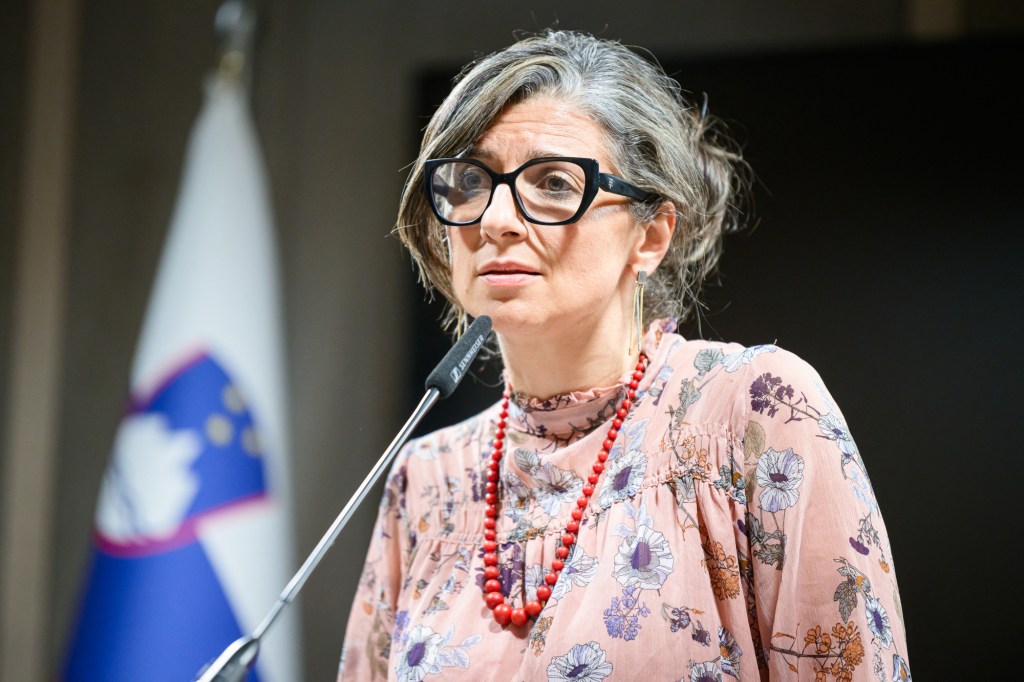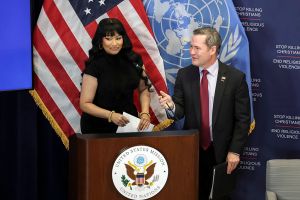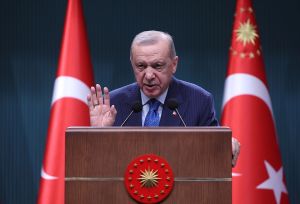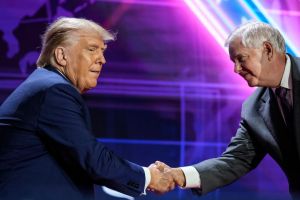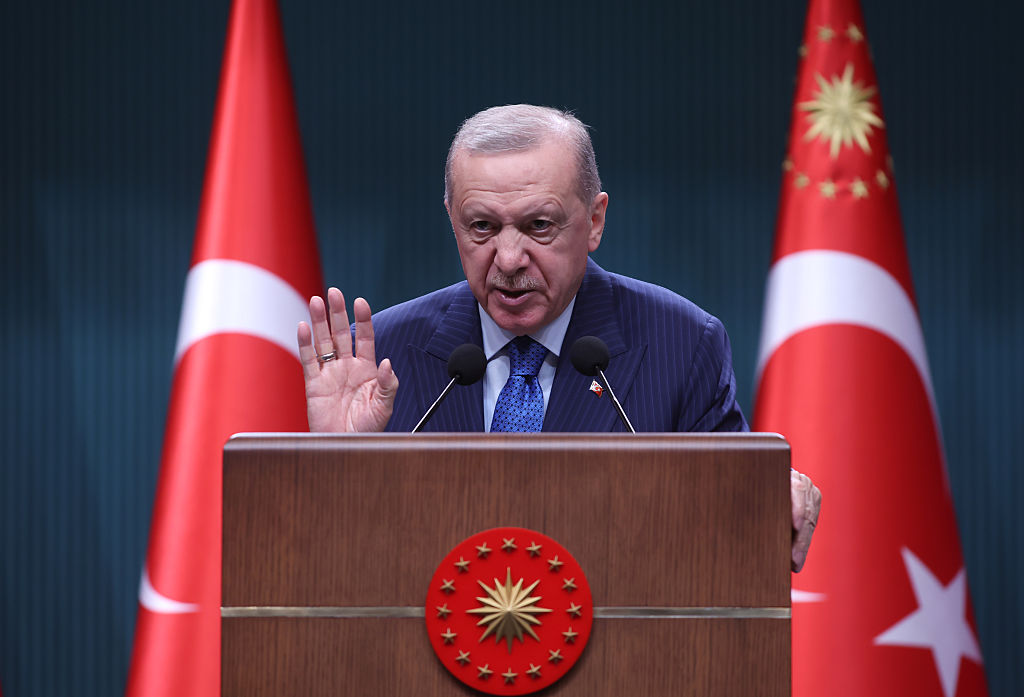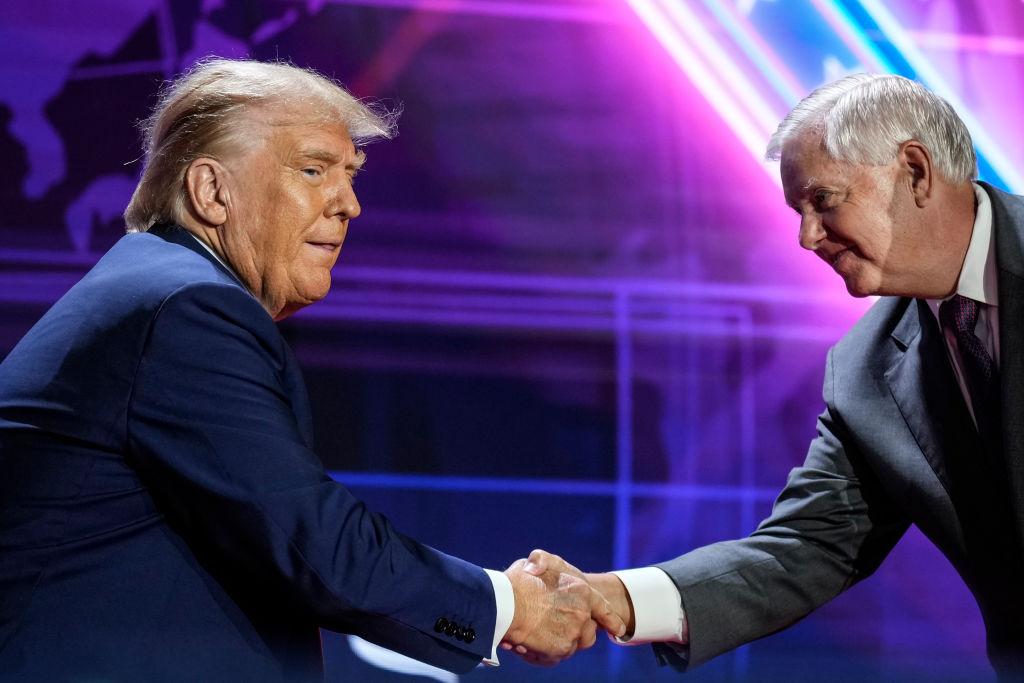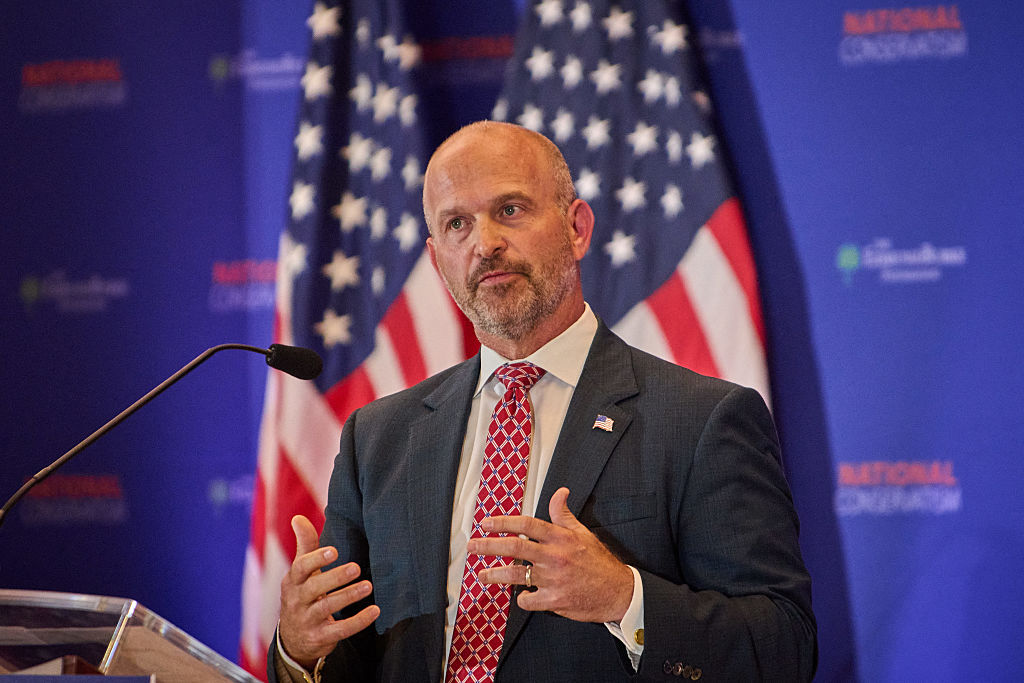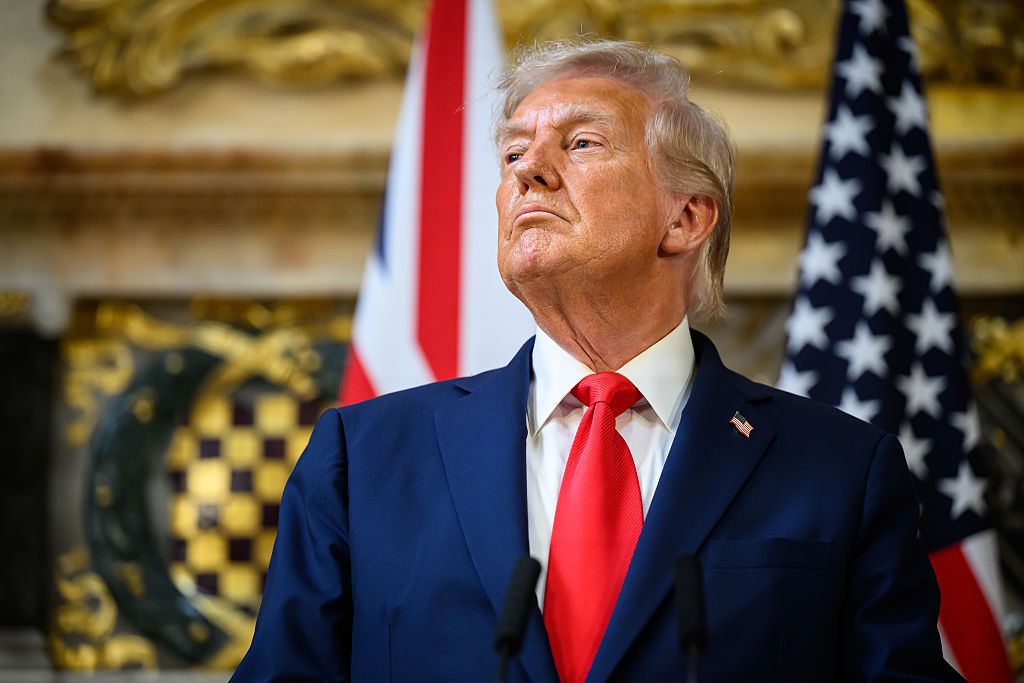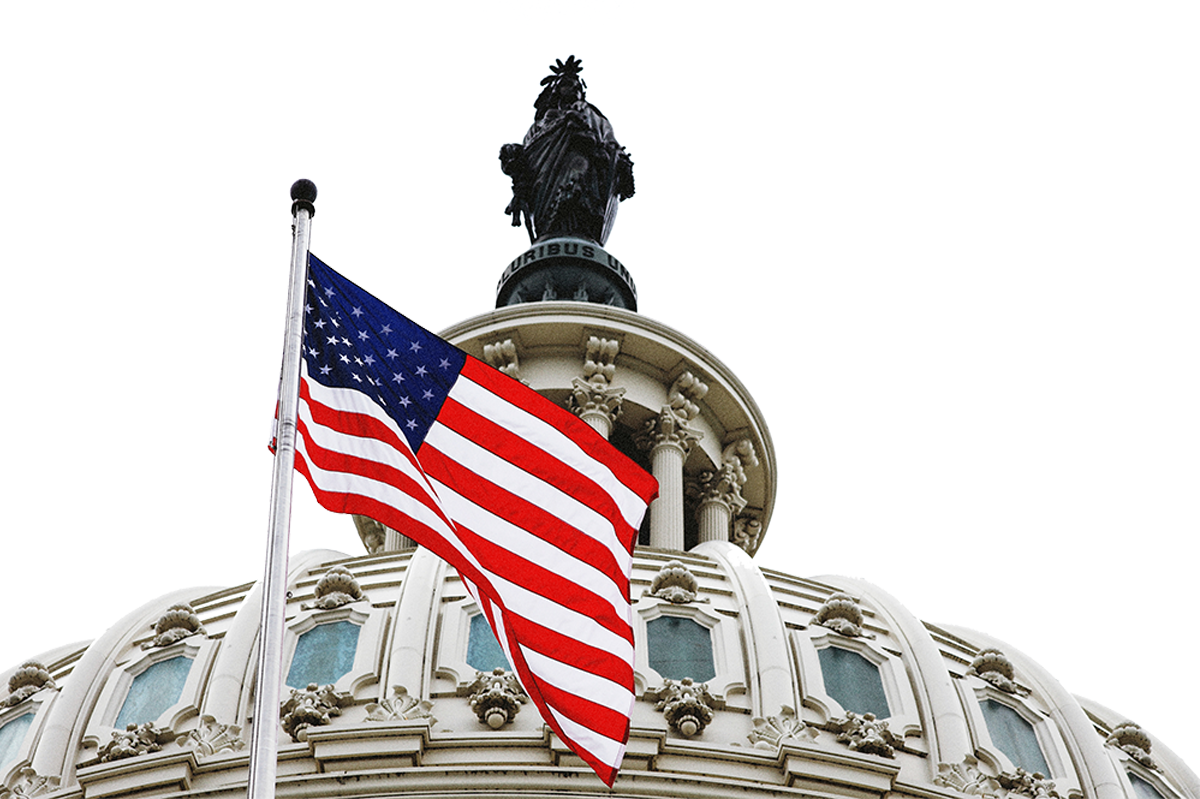Among the many peripheral hangers-on at the UN are members of a curious class of functionary known as special rapporteurs. Numbering about 80, these are in theory independent experts appointed by the Human Rights Council to oversee either particular countries or particular issues. In practice, however, they tend to be drawn from the ranks of activists and academics who share the UN’s general leftist worldview. In many cases they hold distinctly partisan views and make little secret of them. (The UK itself has felt the rough side of their tongue on two occasions: when Philip Alston demanded wholesale changes to British taxation and social security laws in the name of eliminating poverty in 2019, and last year when Michel Forst, grandly named rapporteur on environmental defenders, just as impertinently lambasted the government for coming down hard on the antics of Just Stop Oil protesters who had made commuters’ lives a misery.)
Francesca Albanese may be tiresome, but is she really a threat to anyone?
Francesca Albanese, Italian human rights lawyer, holder of a remote academic position at ultra-liberal Georgetown University and “UN special rapporteur on the occupied Palestinian territories,” fits the mold rather well. Despite being in UN-speak an independent expert, she is openly and outspokenly openly anti-Israeli. In a book portentously called J’Accuse, published in Italy shortly after the October 7 Hamas attack, she identified Israel with settler-colonialism, genocide, apartheid and neocolonial occupation. Despite formulaic condemnation in the book of Hamas’s atrocities towards ordinary Israelis, a few weeks later she told Australian journalists that the assault had been a “natural” response to Israeli rule and referred to Israel’s reaction as being based on a “non-existent right to self-defense.” An official report from her in 2024 about Israel was headed “Genocide as colonial erasure.” And only last month in another official document she demanded a complete cessation of arms sales to Israel, withdrawal of co-operation by corporations ranging from Google to BP which she saw as complicit in its crimes, and prosecution of corporate executives found to have been involved.
No wonder, then, that this week the US decided it had had enough. A couple of days ago Marco Rubio, the Secretary of State, added her to the list of US sanctioned persons, on the basis that she was clearly biased, and that with her views she constituted a clear and present danger to the sovereignty of both the US and Israel.
This is perfectly understandable, especially to an administration already jaundiced as regards the UN as a whole. It is, however, misguided.
First, it is excessive to go to the length of imposing sanctions on someone for what are, at the end of the day, nothing more than expressions of opinion. Especially for the US, with its supposed championship of free speech, there is a need for great care in doing anything that could be interpreted as an attack on free expression.
Secondly, Francesca Albanese may be tiresome, but is she really a threat to anyone? It looks unlikely. She is best seen as a noisy but largely harmless international windbag. However unpleasant her rantings, they are just that: rantings. Her views are so obviously partisan, and her so-called independent reports so one-sided, that few are likely to be convinced by them. True, there are those who hang on her every word – leftist academics, Palestinian partisans, the UN establishment and so on. But with such people she is largely preaching to the choir anyway. There are more deserving targets for US ire.
Indeed, sanctioning her may actually be counter-productive. By doing so the US risks giving her a prominence she does not deserve, and in a polarized world this may encourage those with an anti-US outlook to take her seriously. A far better way of treating people like Dr. Albanese is either to ignore them, or gently tell them why they are wrong: anything else only serves to increase their self-importance.
Thirdly, sanctioning is a serious matter best reserved for people who seriously deserve it: those directly involved in aggression or crimes against humanity, or who directly back or finance it. The US is a country whose lead many others tend to follow: the fact that someone has been sanctioned by it should be an indication of grave wrongdoing. By extending a sanction of this sort to someone as foolish and lightweight as Francesca Albanese, Marco Rubio is devaluing what should be a hard moral currency.
In short, sanctions are like any other warlike material in Uncle Sam’s arsenal. If the US wishes to remain respected in the world, it needs to think carefully about how to deploy it to full effect and not to waste its power. No doubt the Secretary of State here acted under strong pressure from a President impatient to show his power, and in addition to cock a snook at the UN. But on some occasions pressure ought to be resisted. This was one.



